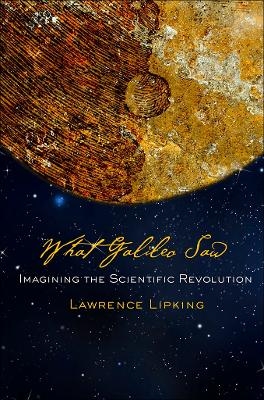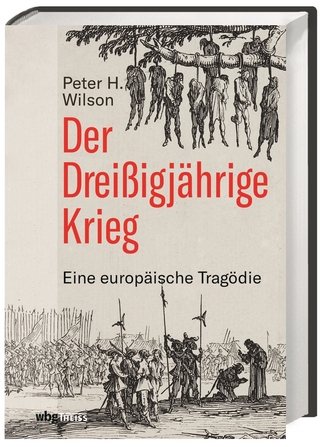
What Galileo Saw
Imagining the Scientific Revolution
Seiten
2014
Cornell University Press (Verlag)
978-0-8014-5297-0 (ISBN)
Cornell University Press (Verlag)
978-0-8014-5297-0 (ISBN)
Lawrence Lipking offers a new perspective on how to understand the Scientific Revolution of the seventeenth century, emphasizing the role that imagination played in the birth of modern science and modern ways of viewing the world.
The Scientific Revolution of the seventeenth century has often been called a decisive turning point in human history. It represents, for good or ill, the birth of modern science and modern ways of viewing the world. In What Galileo Saw, Lawrence Lipking offers a new perspective on how to understand what happened then, arguing that artistic imagination and creativity as much as rational thought played a critical role in creating new visions of science and in shaping stories about eye-opening discoveries in cosmology, natural history, engineering, and the life sciences.When Galileo saw the face of the Moon and the moons of Jupiter, Lipking writes, he had to picture a cosmos that could account for them. Kepler thought his geometry could open a window into the mind of God. Francis Bacon's natural history envisioned an order of things that would replace the illusions of language with solid evidence and transform notions of life and death. Descartes designed a hypothetical "Book of Nature" to explain how everything in the universe was constructed. Thomas Browne reconceived the boundaries of truth and error. Robert Hooke, like Leonardo, was both researcher and artist; his schemes illuminate the microscopic and the macrocosmic. And when Isaac Newton imagined nature as a coherent and comprehensive mathematical system, he redefined the goals of science and the meaning of genius.What Galileo Saw bridges the divide between science and art; it brings together Galileo and Milton, Bacon and Shakespeare. Lipking enters the minds and the workshops where the Scientific Revolution was fashioned, drawing on art, literature, and the history of science to reimagine how perceptions about the world and human life could change so drastically, and change forever.
The Scientific Revolution of the seventeenth century has often been called a decisive turning point in human history. It represents, for good or ill, the birth of modern science and modern ways of viewing the world. In What Galileo Saw, Lawrence Lipking offers a new perspective on how to understand what happened then, arguing that artistic imagination and creativity as much as rational thought played a critical role in creating new visions of science and in shaping stories about eye-opening discoveries in cosmology, natural history, engineering, and the life sciences.When Galileo saw the face of the Moon and the moons of Jupiter, Lipking writes, he had to picture a cosmos that could account for them. Kepler thought his geometry could open a window into the mind of God. Francis Bacon's natural history envisioned an order of things that would replace the illusions of language with solid evidence and transform notions of life and death. Descartes designed a hypothetical "Book of Nature" to explain how everything in the universe was constructed. Thomas Browne reconceived the boundaries of truth and error. Robert Hooke, like Leonardo, was both researcher and artist; his schemes illuminate the microscopic and the macrocosmic. And when Isaac Newton imagined nature as a coherent and comprehensive mathematical system, he redefined the goals of science and the meaning of genius.What Galileo Saw bridges the divide between science and art; it brings together Galileo and Milton, Bacon and Shakespeare. Lipking enters the minds and the workshops where the Scientific Revolution was fashioned, drawing on art, literature, and the history of science to reimagine how perceptions about the world and human life could change so drastically, and change forever.
Lawrence Lipking is Chester D. Tripp Professor of Humanities Emeritus at Northwestern University.
1. Introducing a Revolution2. What Galileo Saw: Two Fables of Sound and Seeing3. Kepler's Progress: Imagining the Future4. The Poetry of the World: A Natural History of Poetics5. "Look There, Look There!" Imagining Life in King Lear6. The Dream of Descartes: The Book of Nature and the Infinite I AM7. A History of Error: Robert Fludd, Thomas Browne, and the Harrow of Truth8. The Century of Genius (1): Measuring Up9. The Century of Genius (2): Hooke, Newton, and the System of the World10. Revolution and Its Discontents: The Skeptical ChallengeAppendix 1. Galileo: The Fable of SoundAppendix 2. Descartes's Three DreamsNotes
Bibliography
Index
| Zusatzinfo | 7 Halftones, black and white |
|---|---|
| Verlagsort | Ithaca |
| Sprache | englisch |
| Maße | 155 x 235 mm |
| Gewicht | 907 g |
| Themenwelt | Geschichte ► Allgemeine Geschichte ► Neuzeit (bis 1918) |
| Geisteswissenschaften ► Sprach- / Literaturwissenschaft ► Anglistik / Amerikanistik | |
| Naturwissenschaften | |
| ISBN-10 | 0-8014-5297-X / 080145297X |
| ISBN-13 | 978-0-8014-5297-0 / 9780801452970 |
| Zustand | Neuware |
| Haben Sie eine Frage zum Produkt? |
Mehr entdecken
aus dem Bereich
aus dem Bereich
Europa 1848/49 und der Kampf für eine neue Welt
Buch | Hardcover (2023)
DVA (Verlag)
48,00 €
Giordano Bruno - ein ketzerisches Leben
Buch | Hardcover (2024)
C.H.Beck (Verlag)
29,90 €
Eine europäische Tragödie
Buch | Hardcover (2021)
wbg Theiss (Verlag)
30,00 €


